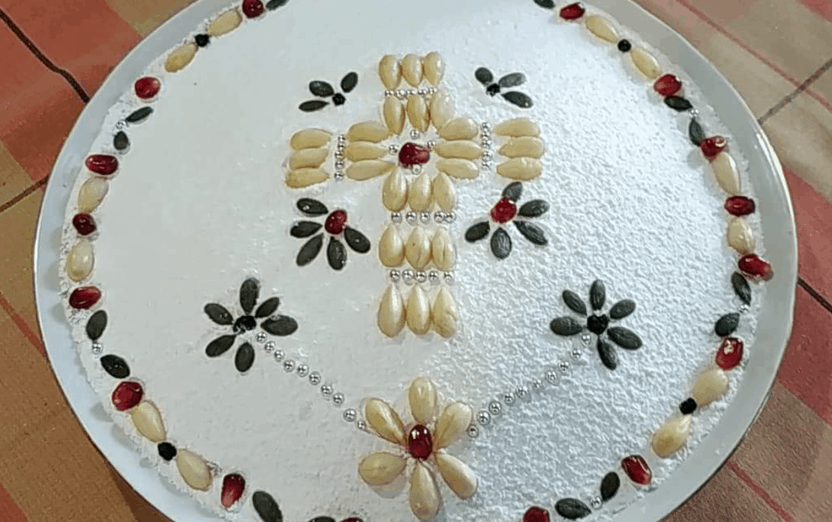If you desire to have a Memorial Service for a departed loved one, you should notify the church office well ahead of time, preferably at least two weeks prior when possible. As a general rule, Memorial Services are offered for those departed Orthodox Christians whose funerals took place in the Orthodox Church.
When the Memorial Service is offered, it is customary for the family of the deceased to bring a dish of boiled wheat to the Church. The boiled wheat is placed on a table in the nave. The wheat, known as koliva, is a symbol of the Resurrection. When speaking of the Resurrection, our Lord said: “Unless the grain of wheat falls into the earth and dies, it remains alone, but if it dies it bears much fruit.” (John 12:24).
In addition to the koliva, an up to 8 X 10 photograph of the departed may be placed on the table in the nave. Flowers should not be placed on the table with the koliva but may be placed in the parish hall on the table where the koliva is made available for distribution to the parish community. Also, it is customary for the family of the deceased to donate to the parish in honor of the departed or sponsor a luncheon. Please contact the church office if you would like to sponsor a luncheon following a Memorial Service.
Memorial services are held after the Divine Liturgy based on the following guidelines:
- At three, nine, and forty days after death on the nearest Sunday.
- At the six-month anniversary of death on the nearest Sunday.
- At the first-year anniversary of death on the nearest Sunday.
- At the third-year anniversary of death on the nearest Sunday.
- At the fifth-year anniversary of death on the nearest Sunday.
- At the tenth-year anniversary of death on the nearest Sunday.
- For all other Memorials, the deceased may be remembered at the yearly Saturday of Souls Liturgies, or a Memorial may be held on a Saturday.
Memorial services are NOT held on:
* All holy days of the Lord, such as Christmas, Epiphany, Pascha, Presentation of Christ, Transfiguration, etc.
* All holy days of the Theotokos, such as the Nativity of the Theotokos, the Entrance into the Temple, the Annunciation, and the Dormition
* From the Saturday of Lazarus up to and including the Sunday of St. Thomas
* Sunday of Pentecost

